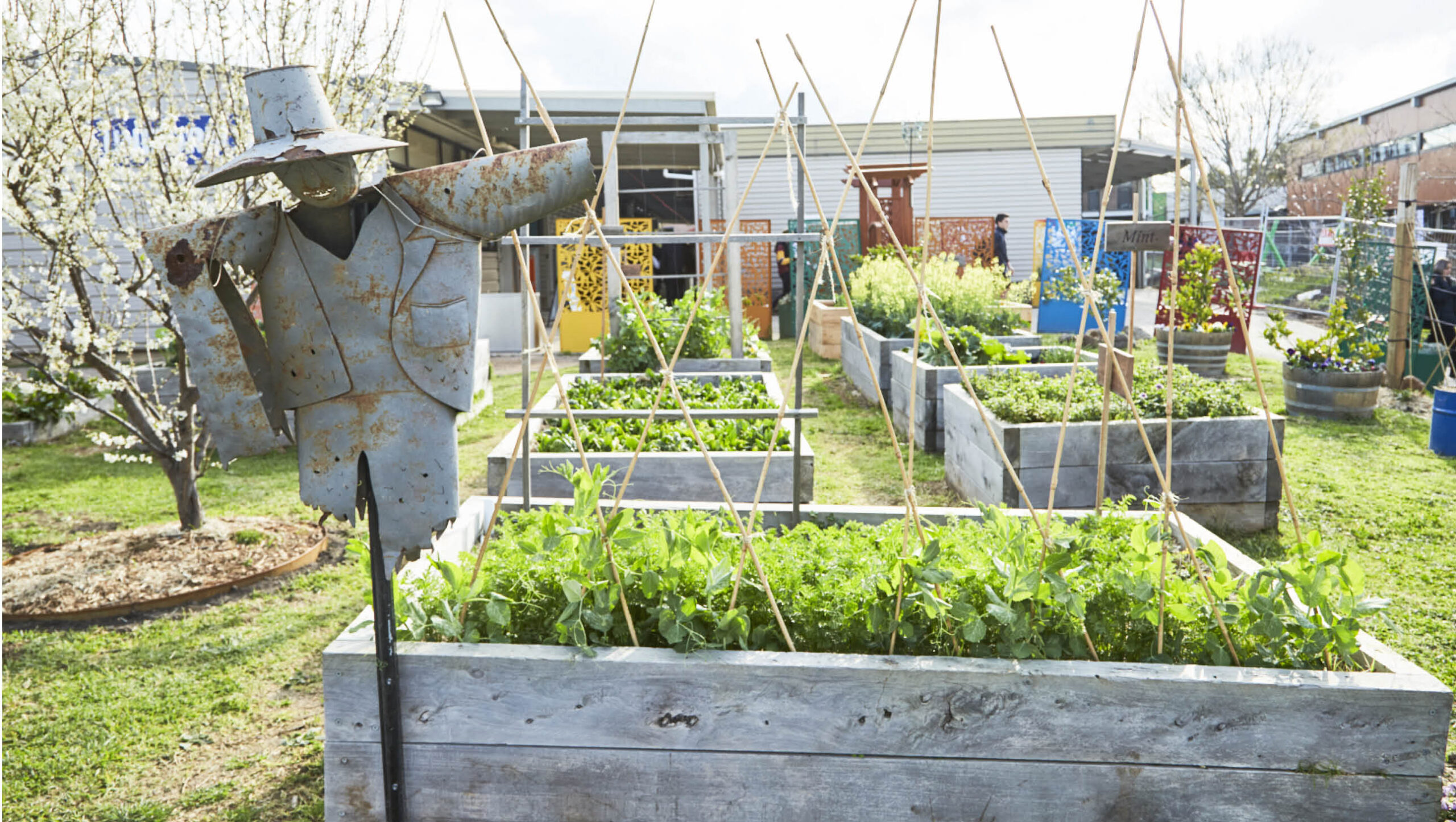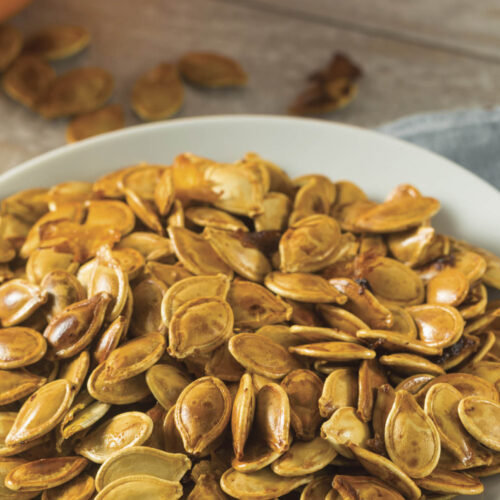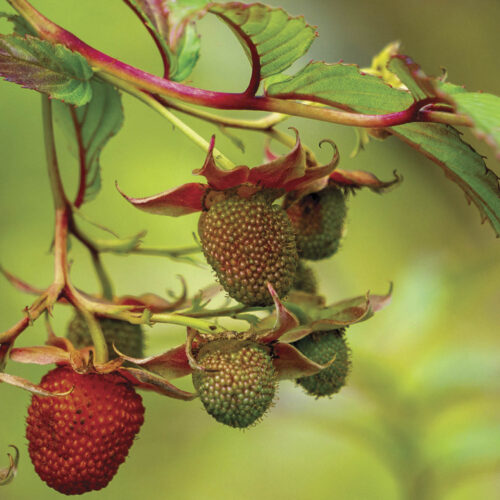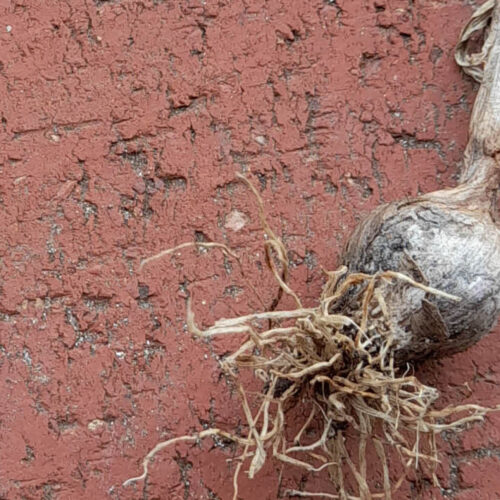A green learning environment
2024-01-28T23:16:36+11:00
One principal’s vision to enhance his students learning environment through gardening has everyone at the school seeing green, writes Kate Neale.
In the North West Melbourne suburb of Sydenham, the Catholic Regional College (CRC) for senior students once suffered the same fate as many school grounds – it contained only boring, low maintenance and dreary spaces providing little imagination or innovation. The vision of the principal Brendan Watson was to change that, to look well beyond the built learning environment, creating green spaces for students and staff to retreat, reflect and be inspired. The result is a garden that was presented with the Best Edible Garden Award in the 2019 Victorian Schools Garden Awards.
Growing interest
Over the last six years, nine purpose-built gardens have been created with the help and direction of students. Among them is a garden that uses tropical and aquatic plants such as palms and water lilies, bamboo, philodendrons and native grasses. It is situated beside the beauty salon classroom, providing a sense of tranquillity and relaxation.
The jewel in the crown of the entire school, however, is arguably the one-acre kitchen garden and newly established orchard. Tended by the school’s Certificate II Horticulture students, it abounds with beautiful organic produce and attracts plenty of attention from passersby.
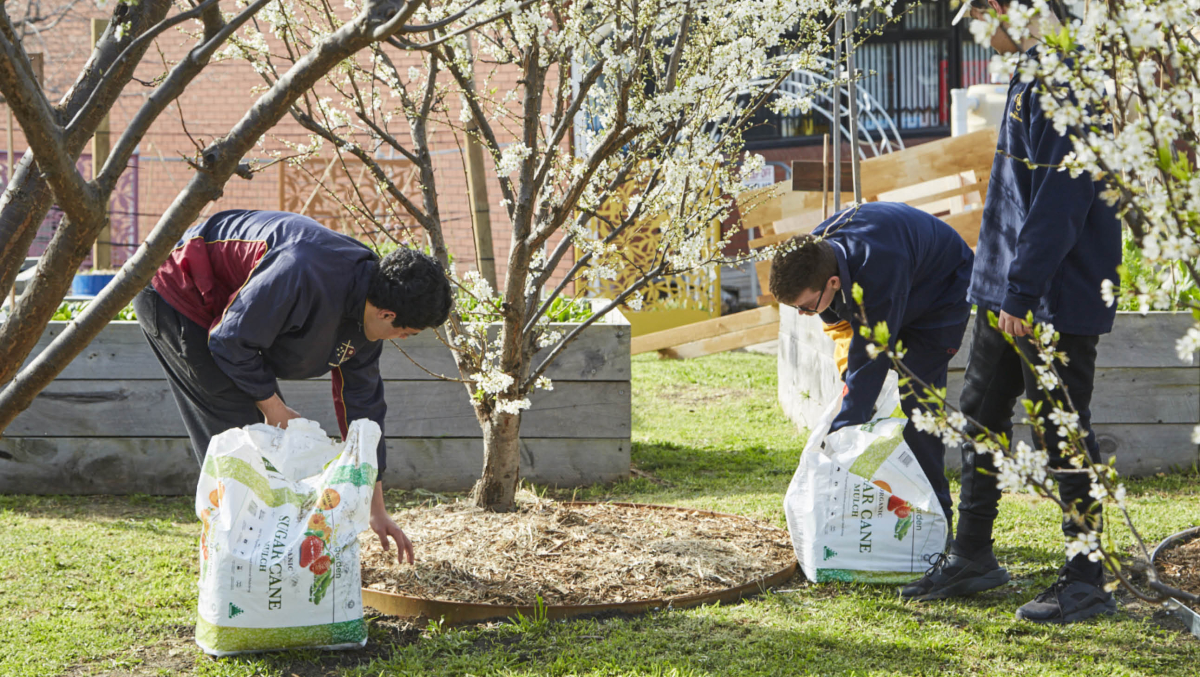
Like the school grounds more broadly, the kitchen garden once struggled. The school found it difficult to secure a long-term horticulture teacher, and the students seemed disengaged with the space and their learning.
The principal finally found an enthusiastic candidate: Michael Casey, who stepped in to lead the practical side of the horticulture course. Michael, who’d previously worked at the school, was a firm believer in the therapeutic qualities of spending time in green spaces, and was keen for students to reap the benefits of time spent outdoors too. Another essential element is teamwork.
“I like coming out to the garden,” says one student. “I have my own jobs and goals to do, but when they’re done, I help others.”
The teachers also seem happy to relinquish authority and power within the group with one reflecting, “I feel like the adults [teaching staff] are just here to help. We’re all just here to garden.”
Another, employed as a teacher’s aide to help one student in particular, believes the flexible approach benefits her student who loves touching and smelling the plants. “Compared to his anxiety in other classes, he has agency here. He feels comfortable, and the kids look out for each other.”
Another shy but deep-thinking student remarks, “The garden is like a metaphor for a better society. Plants have their own agenda, too, but they also work well with other plants. And pollinators are like having extra people to help. I have these skills here to use in social aspects [of my life].”
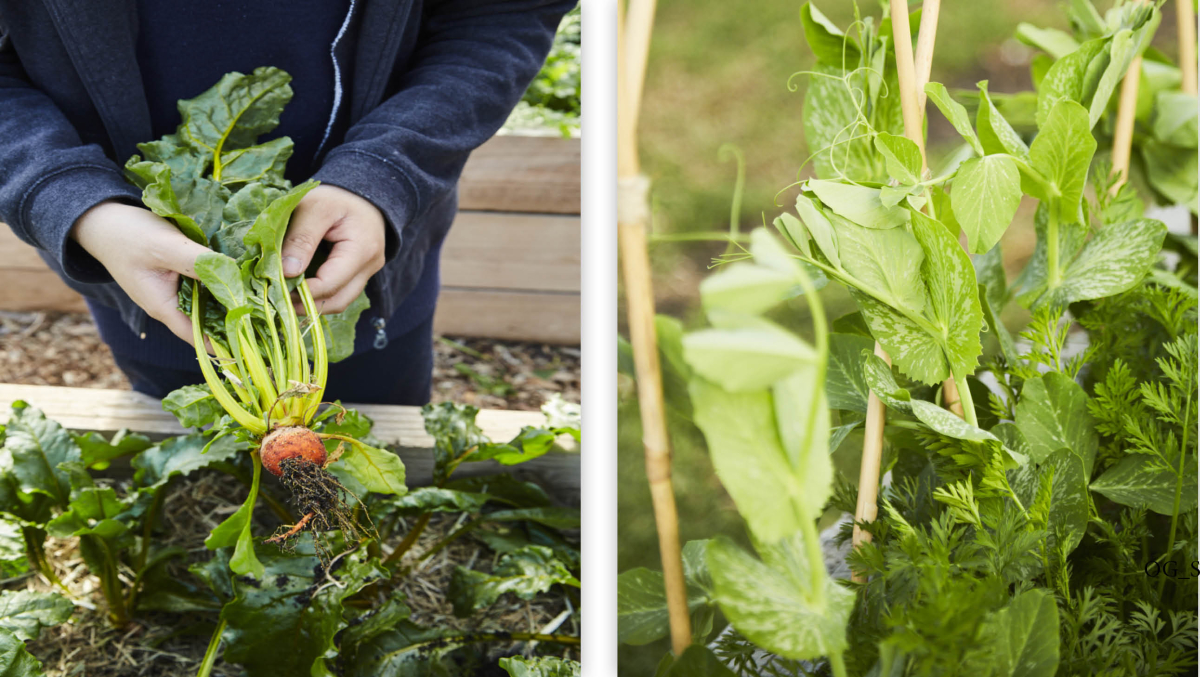
One of the nicest and most unexpected benefi ts of the garden, Casey explains, has been how some of the student’s friends (if they have a class break) drop in for a visit.
“They often come to just hang out, but conversations include what’s happening in the garden. It’s good they feel comfortable here. They are respectful and you can see my students show pride in the garden as they explain what’s growing. Why wouldn’t I encourage it?” Casey says.
Therapeutic benefits
The garden’s therapeutic value is obvious. “I often see students just sitting and refl ecting and I want them to have that space to do it,” Casey explains.
“The garden is a place to learn, but you can’t learn if you’re not in the right head space. So why not give them the space to gather their thoughts? They’ll come back to you when they’re ready. And they do.”
One student says: “The garden is an escape for me. Not from a bad place, just from the busyness. Just a place I can hide away. Home is busy. This is my chill-out zone.”
You can see the students’ obvious comfort in the class through their joking and how they enjoy each other’s company, teachers included. It’s an approach not lost on the students’ parents either.
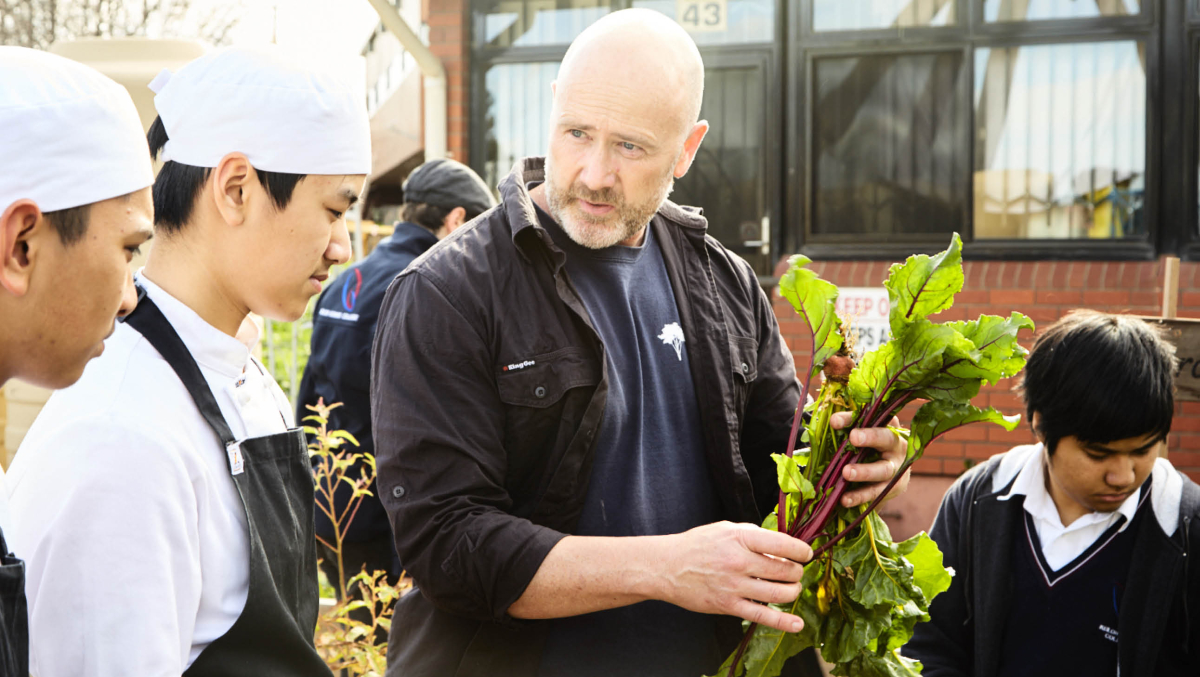
“Wednesday is defi nitely his favourite day,” one parent says. “The garden makes him happy.”
Students also love that they can put their knowledge to use immediately with a hands-on approach that connects with their other classes, such as biology.
“All our other classes are about learning for the future. But we need knowledge for now,” a student says. It’s a powerful reminder that we often treat children as ‘becomings’ without appreciating their ability to contribute as ‘beings’ in the here and now.
This article was first published in our Early Autumn 2019 issue (OG 115) but still an inspiration for all the young gardeners out there. You’ll find many tips for starting your own garden in ABC Organic Gardener magazine: subscribe here.


